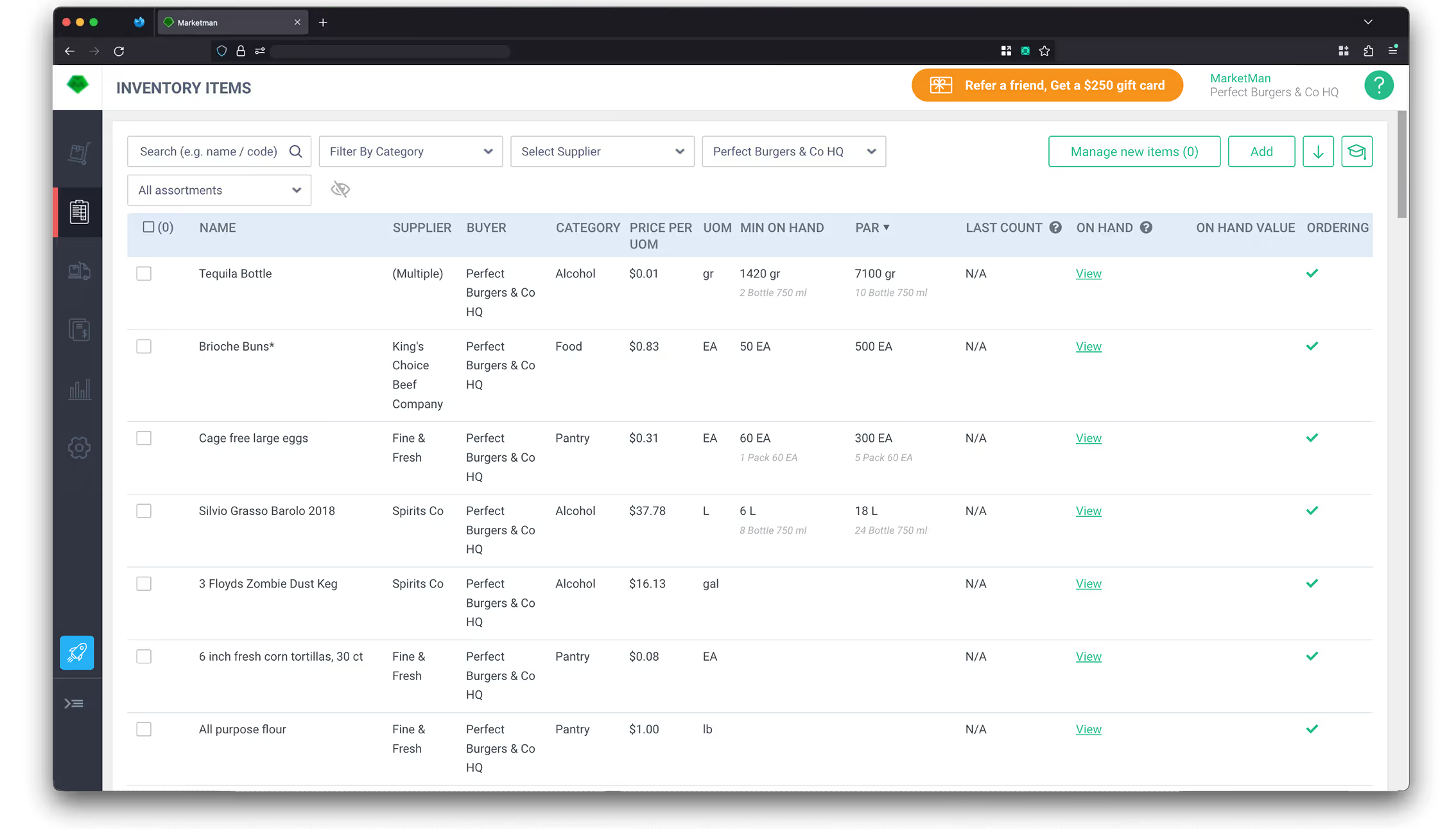

Restaurant Marketing 101: Ultimate Guide for Growth in 2025
Explore the key elements of restaurant marketing in this comprehensive guide for 2025. Learn how to build brand awareness and attract customers, what makes up effective marketing strategies, and 25 restaurant marketing ideas.
Marketing is essential for a successful restaurant. It helps businesses build brand awareness, attract new customers, and keep regulars returning.
In this guide, we’ll explore email marketing, social media strategies, and search optimization tailored for restaurant owners.
Whether you’re a small independent operator or part of a larger chain, these actionable tips will help you grow your business in 2025. By using restaurant marketing tools well, you can build a strong online presence and create customer loyalty programs for lasting success.
What is Restaurant Marketing?
Restaurant marketing involves a suite of strategies to enhance your restaurant's visibility and ability to attract and retain more loyal diners.
It includes a mix of digital and traditional tactics, such as creating engaging content on social media, optimizing your website for search engines, and using email marketing to connect with customers.
Beyond the digital realm, restaurant marketing extends into community engagement through local events and partnerships, fostering a strong connection with the neighborhood.
Why Restaurants Should Market Their Business
In the highly competitive landscape of the restaurant industry, strategic marketing is essential.
It enables your establishment to stand out by highlighting what makes it unique—whether that’s your culinary creativity, exceptional service, or a one-of-a-kind atmosphere.
More than just making your restaurant known, effective marketing helps to build a deep emotional connection with your audience, turning casual diners into loyal customers.
This not only increases footfall but also boosts online engagement, driving both reservations and digital orders. Consistent and thoughtful marketing efforts reinforce customer retention, encouraging repeat business which is crucial to the bottom line and long-term success.
Restaurant Marketing Ideas
Email Marketing
Engaging your customers through email marketing is an incredibly effective strategy for connecting with and maintaining a relationship with your audience.
By sending personalized newsletters, you can keep your diners updated with the latest promotions, upcoming events, and news about your restaurant.
Tailoring emails for special occasions like birthdays or anniversaries adds a personal touch that enhances customer loyalty. Furthermore, targeted campaigns can successfully re-engage those who haven't visited in a while, reminding them of what they've been missing.

Social Media Marketing for Restaurants
In today’s digital age, having a robust social media presence is vital for any restaurant looking to increase its visibility.
Platforms like Instagram, TikTok, and Facebook offer unique opportunities to engage with a broader audience. For example, there are endless Instragram strategies for restaurants to attract customers. The trick is to get creative and stay true to your brand.
Post user-generated content to emphasize your brand’s authenticity and increase customer involvement and trust. Build a connection with your followers through behind-the-scenes glimpses into your restaurant’s daily operations.
Additionally, consider collaborating with influencers to propel your reach even further, introducing your establishment to potential customers who trust these social figures.
Organic Search Optimization
Optimizing your restaurant for search engines is a crucial strategy for enhancing your online visibility.
Ensure your Google Business profile is always accurate and up-to-date, as this is often the first touchpoint for potential customers searching online.
A mobile-friendly website design is not just recommended; it's essential, as it significantly improves user experience and boosts your search engine rankings.
By incorporating location-specific keywords into your website content, you can dramatically increase your local SEO effectiveness, making it easier for nearby diners to discover your restaurant.
Restaurant Marketing Tools
To streamline your efforts, consider these tools:
- Email platforms: Use Mailchimp or Constant Contact for campaigns.
- Social media management: Tools like Hootsuite or Buffer help schedule posts.
- Analytics tools: Google Analytics and social insights provide performance data.
These tools are essential for building a comprehensive restaurant online presence and executing targeted campaigns.
How Much Does Restaurant Marketing Cost?
Determining the cost of restaurant marketing can vary significantly based on your business size, objectives, and financial flexibility.
For those on a tight budget, leveraging free tools such as social media, Google My Business, and email marketing campaigns can provide substantial benefits without a hefty investment. Mid-range budgets might consider allocating funds towards professional photography, paid social media advertisements, and enhancements to your website, balancing cost with impactful outcomes.
For establishments looking to invest heavily in marketing, partnering with specialized agencies can offer comprehensive strategies tailored to your specific needs.
It is advisable to allocate between 5-10% of your monthly revenue towards marketing to ensure sustained effort and visibility. Prioritizing investments in marketing channels that yield the highest return on investment is crucial for maximizing efficiency.
Regularly monitor marketing expenses to stay on budget, allowing for adjustments as needed to optimize your marketing spend.
What is a Restaurant Marketing Strategy?
A restaurant marketing strategy provides a structured approach to reach business goals, tailored to your unique brand identity.
At the core, define what sets your restaurant apart and establish a strong brand identity. Identify your target audience to ensure your marketing efforts are directed towards the right demographic. Selecting the right marketing channels that align with your business goals will enhance your strategy’s effectiveness.

Steps to Creating a Restaurant Marketing Strategy
Begin by conducting a SWOT analysis to understand your strengths, weaknesses, opportunities, and threats. This will inform your approach and help define specific, measurable goals.
Choose the appropriate tools and channels based on this analysis to ensure your efforts are focused and effective.
Implement a content calendar to maintain consistency and regular engagement with your audience.
What Makes An Effective Restaurant Marketing Plan?
An effective restaurant marketing plan is underpinned by data-driven insights that guide decision-making and strategy adjustments.
It’s crucial to track key performance indicators (KPIs) such as customer acquisition cost (CAC) and return on investment (ROI) to measure success and identify areas for improvement.
Adaptability is essential in a dynamic market landscape, allowing your marketing efforts to remain relevant and effective as trends evolve.
Lastly, consistency in messaging across all platforms solidifies your brand’s presence and helps in building trust and loyalty among your customers. By integrating these elements, your marketing plan can drive substantial growth and customer engagement for your restaurant.
25 Best Restaurant Marketing Strategies
- Send personalized email newsletters: Build relationships by sharing tailored content, exclusive offers, and updates.
- Offer free or discounted items on birthdays: Create a memorable customer experience and encourage repeat visits.
- Leverage user-generated content: Share customer photos and testimonials to build trust and authenticity.
- Keep your Google Business profile up-to-date: Ensure accurate hours, menus, and contact details for better visibility.
- Add online reservation links to all platforms: Make it easy for customers to book tables directly.
- Mobile-optimize your menu: Ensure your online menu is easy to navigate on smartphones.
- Focus on a loyalty program: Reward regular customers with discounts or points for repeat visits.
- Respond to guest feedback: Show customers you value their opinions by replying to reviews and making improvements.
- Unlock guest data for personalization: Use insights from reservations and orders to tailor marketing efforts.
- Share behind-the-scenes content: Highlight your team and daily operations to create a personal connection.
- Update your content with high-quality images: Invest in professional photography to showcase your food and ambiance.
- Collaborate with local artists for promotions: Partner on unique events or decor to attract community interest.
- Sponsor local events: Gain exposure by supporting festivals, charity events, or sports teams. This is a key aspect of local restaurant marketing.
- Partner with community businesses: Cross-promote with nearby shops or services for mutual benefit.
- Offer short-term promotions: Use limited-time deals to create urgency and drive traffic.
- Create engaging video content: Use short-form videos on TikTok or Instagram to highlight menu items or events. Don’t overlook the power of TikTok restaurant trends.
- Use influencer marketing: Collaborate with food influencers to reach their audience and build credibility.
- Sell branded merchandise: Extend your brand with items like t-shirts or mugs that customers can purchase.
- Optimize social media ads: Target specific demographics for effective promotions.
- Run contests and giveaways: Encourage participation by offering free meals or discounts.
- Utilize SMS marketing: Send timely offers or reminders directly to customers' phones.
- Join food delivery platforms: Expand your reach by offering delivery through popular apps.
- Celebrate national food holidays: Create special offers or events around days like National Pizza Day.
- Upgrade your website: Improve navigation, design, and functionality to enhance user experience.
- Use traditional advertising: Incorporate flyers, local radio, or newspapers to target your community.

The heart of any successful restaurant lies in precision and efficiency. With MarketMan, leading restaurant inventory management software, restaurateurs eliminate manual tasks and automate inventory counting, reporting, purchasing, and more. Talk to one of our experts today to explore how MarketMan can jumpstart your restaurant’s profitability and transform your daily operations in 2025 and beyond.
Author
Contributors
If you have any questions or need help, feel free to reach out
Don't miss out on maximizing your restaurant's profits! Calculate your ROI with MarketMan
Join over 18,000 restaurants and get the hottest restaurant tips delivered to your inbox
You may also be interested in
Ready to get started?
Talk to a restaurant expert today and learn how MarketMan can help your business







